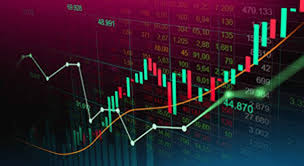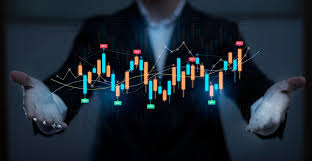
Forex trading, short for foreign exchange trading, is the global market for the buying and selling of currencies. It operates 24 hours a day, five days a week, offering opportunities for traders around the world. This liquid market, with trillions of dollars traded daily, plays a crucial role in the global economy. For those looking to start their journey in Forex, understanding its fundamental aspects is essential. As you explore, consider the tools provided by forex trading meaning Argentina Brokers to help navigate this exciting trading landscape.
What is Forex Trading?
At its core, Forex trading involves the exchange of one currency for another, driven by the fluctuations in currency values. Currency pairs, such as EUR/USD or GBP/JPY, represent the exchange rates between the two currencies. When a trader believes that one currency will strengthen against another, they will buy the currency pair, and conversely, if they expect a decline, they will sell it. This cycle of buying and selling creates a dynamic market that traders can exploit for profit.
The Importance of Forex in the Global Economy
The Forex market is significant for several reasons. Firstly, it provides liquidity—meaning traders can quickly buy or sell currencies without drastically affecting their value. Secondly, it allows for easy access to different currencies, making international trade more feasible. Moreover, Forex trading facilitates the economic connectivity of countries, enabling investment and financial transactions across borders.
How Forex Trading Works

Forex trading works via brokers or financial institutions that provide platforms for traders. Each currency pair has a basis, known as the base currency, and a quoted currency. The price reflects how much of the quoted currency is needed to purchase one unit of the base currency. For instance, if EUR/USD is quoted at 1.20, it means 1 Euro equals 1.20 U.S. Dollars.
Key Concepts in Forex Trading
Understanding various concepts is vital for successful Forex trading:
- Pips: The smallest price move that a given exchange rate can make based on market convention.
- Leverage: Borrowing capital to increase the potential return of an investment, allowing traders to control larger positions.
- Margin: The amount required to open a leveraged position, different from the total value of the trade.
- Technical and Fundamental Analysis: Methods used by traders to analyze market conditions and predict currency movements.
Types of Forex Trading Strategies
Various trading strategies can be employed based on market analysis. Some of the commonly used strategies include:
- Scalping: A quick trading style that aims to exploit small price gaps created by order flows or spreads.
- Day Trading: Involves entering and exiting trades within the same day, avoiding overnight risks.
- Swing Trading: Taking advantage of price swings in the market over days or weeks, rather than minute-to-minute fluctuations.
- Position Trading: Long-term strategy that involves holding positions for weeks or months based on fundamental analysis.

Risks Associated with Forex Trading
While Forex trading provides avenues for substantial profits, it is not without risks. Market volatility can lead to significant losses. Factors contributing to this volatility may include economic data releases, political events, and changes in market sentiment. Additionally, leverage can amplify losses as well as gains. Thus, risk management techniques such as stop-loss orders and position sizing are integral parts of trading strategy.
Getting Started with Forex Trading
For those new to Forex, the journey begins with education and practice. Here are essential steps to get started:
- Educate Yourself: Invest time in learning about Forex trading. Many resources are available online, including courses, webinars, and trading guides.
- Choose a Reliable Broker: Selecting a trustworthy broker is vital. Look for brokers with competitive spreads, favorable leverage options, and strong customer support.
- Open a Trading Account: Start with a demo account to practice trading without risking real money. As you gain confidence, consider moving to a live account.
- Develop a Trading Plan: A well-thought-out trading plan lays the groundwork for success. This plan should outline your strategies, risk tolerance, and financial goals.
- Stay Updated: Keep abreast of market news and events that could impact currency prices. Economic indicators and geopolitical developments can create trading opportunities or risks.
Conclusion
Forex trading is a captivating and potentially profitable venture for those willing to invest the time and effort in understanding the market. By comprehending the meaning of Forex trading, embracing its complexities, and developing sound strategies, traders can navigate the challenges and seize the abundant opportunities present in the currency market.
